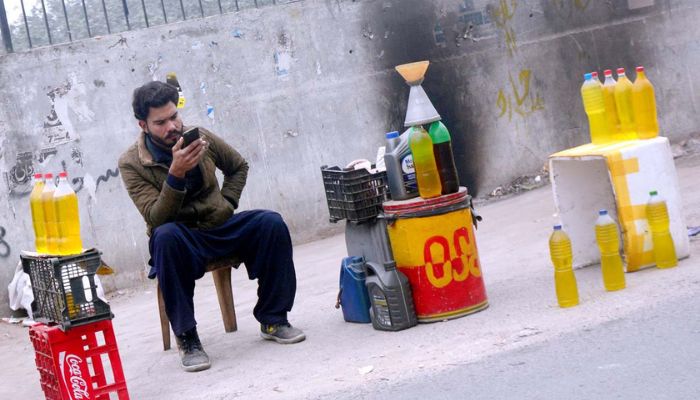Iranian oil gains popularity in Pakistan amid soaring inflation
Analysts say authorities are turning a blind eye to Iranian imports amid declining reserves
Iranian oil, which is being sold at considerably cheaper rates, has been gaining popularity in Pakistan in recent months amid record-high inflation and near-constant increases in fuel rates.
The rise of Iranian oil imports has hurt the sales of local refineries and they were expected to post bleak results in the second quarter of this year, refinery sources and industry analysts told S&P Global Commodity Insights.
Local refineries were already facing a reduction in demand as firms across several sectors shut down due to a slowing economy, and people turned to public transport because of increasing costs.
According to the Oil Companies Advisory Council, the country's oil sales dropped 46% year-on-year in April — a decline of about 8.8 million barrels. In the same month, fuel consumption plunged 83% to just 70,000 metric tons.
The S&P report stated that soaring inflation, a weakening rupee and a shortage of foreign exchange reserves have prompted small traders and individuals with a business network in Iran to purchase Iranian oil at heavily discounted rates, several industry analysts, including Arif Habib Ltd's Head of Research Tahir Abbas, said.
Insight Securities said that a significant price difference between Pakistani and Iranian barrels, coupled with the latter's widespread availability in the country's southern areas, was harming refiners' sales.
The average retail price of diesel has been Rs288 per litre in Pakistan in recent months, the report said. Compared to this, Iranian diesel has been selling as low as Rs230 per litre, leading to decent profits for private dealers.
"Between 35,000-60,000 barrels per day of diesel could have flowed into the domestic market through southern sea and land transportation routes under the radar in recent months and it's possible that the volumes could rise," a senior executive at Attock Refinery and a middle distillate distribution management source at Pak Arab Refinery, or PARCO, told S&P.
Import of Iranian oil has been banned in Pakistan since the United States imposed sanctions on the neighbouring country's petroleum and petrochemical trade in 2013.
Refinery sources and analysts at Insight Securities said authorities were turning a blind eye to the imports amid declining foreign reserves.
"Infiltration of Iranian diesel is growing and it could substitute as much as 25%-30% of Pakistan's total diesel sales," a private dealer said.
Besides denting local refiners' sales, the import of Iranian oil has also caused billions of dollars in losses for the government, which relies heavily on the GST and petroleum development levy from fuel sales to generate revenue.
Many private dealers with no fear of reprisal have been offering smuggled Iranian products to oil marketing companies on discounted rates minus a petroleum development levy, the report added.
"The government either doesn't understand the gravity of the situation or is just turning a blind eye due to shortage of foreign exchange reserves required for legal imports of deficit products," the Attock Refinery executive said.
He said the smuggling of Iranian oil had "never been on this huge and unparalleled scale" and if it continued, then local refineries were at risk of shutting down.
-
Bitcoin plummets toward $60,000 as investors dump risky bets
-
Bitcoin crashes below $63K as regulatory pressure and market fears grow
-
Bitwise Crypto Industry innovators ETF: What investors should do in 2026?
-
Nintendo shares slide again as momentum fears grow
-
Gold, silver prices fallen sharply; What’s driving the drop?
-
Gold’s record climb: Experts question if its safety is ‘overstated’
-
Dubai unveils plans to construct street built with real gold
-
Netflix slams Paramount’s bid: 'Doesn't pass sniff test’ as Warner battle escalates












